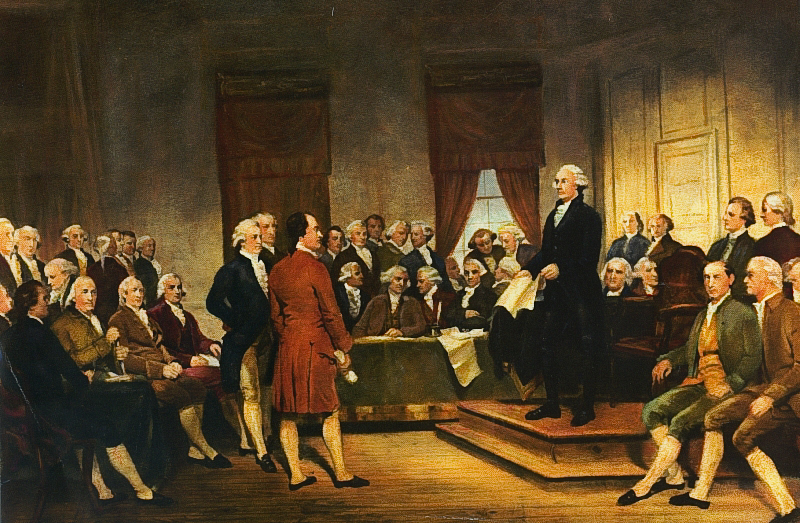
Yesterday, I posted the photo of the couple being married by the Pope on the Chilean airliner, with the comment that, as everyone had smart phones and was recording the event, everyone is now a journalist.
This provoked several responses from my friends at Mojocon, on Facebook that I was 'debasing the craft'.
I respectfully disagree.
I disagree because I believe it is time to 'deprofessionalize' the 'profession' and return a free press to its roots - to a time when everyone was a journalist.
In the United States, we don't license our journalists. We don't do that because it would be contrary to the First Amendment, which guarantees the right of a free press to everyone. What this means is that everyone has the right to publish.
Everyone.. and anyone. At any time.
Where did this notion come from? This is important.
Newspapers arose around the same time as the American Revolution, and the Revolution was in fact, a great driver of newspapers (as it would later be in France). The passage of the Stamp Act in 1765 did not drive the colonialist to arms (at least not yet), but it did drive them to their printing presses.
All it took to be a 'journalist' in those days was a printing press. And the publication of newspapers, (and pamphlets) exploded.
In 1768, the Royal Council took action against the Boston Gazette because of its attacks on the Royal Governor. The Massachusettes House responded by resolving that "The Liberty of the Press is the Great Bulwark of the Liberty of the People." Patriot and printer became one.
At the outbreak of fighting in 1775, there were fourteen 4-page newspapers in the Colonies. Four years later that number had risen to 37. Prior to 1775, the average circulation of papers in New England was 600 copies. After 1775, that rose to 3,500.
Many people think of the Declaration of Independence as a hand-written document, but in fact it was printed, and reproduced throughout the colonies by those same newspapers.
It was this sentiment that led to the adoption of the First Amendment, which guaranteed the right of anyone to publish. One did not have to be a 'journalist' to publish. One needed to only access to the technology.
In France, following the French Revolution, the explosion of newspapers was even more dramatic. Prior to the Revolution, there had been almost no newspapers, per se, as the Crown had complete control over the press. At the height of the Revolution, newspaper circulation reached 300,000 copies per day, exceeding even the United States at the time.
There were not suddenly thousands of 'professional journalists' in France, newly minted by the Sorbonne. On the contrary, as in America, smart but concerned citizens simply took to the presses.
Alas, in France, unlike in America, the notion of a Free Press did not last. The Terror 1793-4 took the lives of one-sixth of the newly active journalists.
This notion of a 'free press' was severely perverted by the rise of the electronic media. Radio, and then television were so expensive and complicated to produce that no longer could average citizens 'take to the presses.' On the contrary, one now had to be an employee of a major media company to even get limited access to the levers of public discourse power.
This perversion of the press was compounded when those same media companies began to make vast amounts of money, so that a 'journalist' like Matt Lauer would be paid a mind boggling $30 million a year. Journalism had become entertaiment and performance.
The arrival of iPhones and smartphones, like the arrival of the printing press some 500 years prior, suddenly, and once again, placed the power to publish in the hands of everyone.
The electronic press, for the first time, is now a truly free press, where everyone has access and may publish (or produce) whatever they want, whenever they want.
This is no bad thing.
This is something to celebrate.
To embrace.
Yes, this is vastly disturbing to the minions of 'professional' journalists who hang their hats (and their salaries) on their notion of exclusivity. But true journalism only works when it is NOT exclusive - when all voices are heard.
It is ironic to me that our 'professional' journalists always extol a Free Press until they are actually faced with one.


